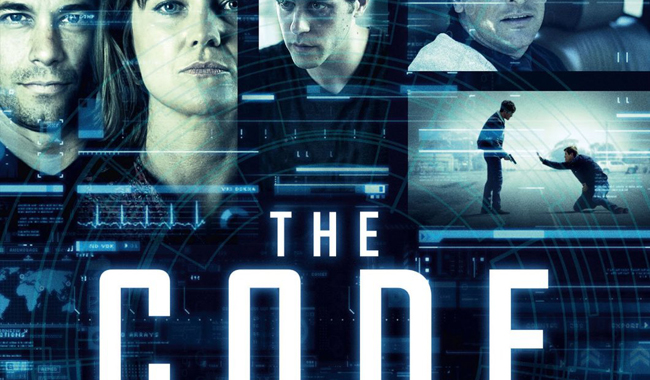
The Code Review
 On a secret night-time joyride, the car of two teenagers collides with a lorry. Both of them are badly injured but no one calls for help. Why? Based on this question Australian political thriller The Code spins an intricate storyline of corruption, secrecy and betrayal.
On a secret night-time joyride, the car of two teenagers collides with a lorry. Both of them are badly injured but no one calls for help. Why? Based on this question Australian political thriller The Code spins an intricate storyline of corruption, secrecy and betrayal.
ABC’s six-part drama, created by Shelley Birse, has a lot going for it. The cast includes some internationally familiar faces like Lucy Lawless, David Wenham and Adam Garcia, but The Code hardly needs these to sell itself. Set against the backdrop of the stunning Australian outback and the country’s political hub Canberra, The Code opens to the blurred memory of a nightmarish accident. With the community in the small town of Lindara in the dark about what really happened, teacher Alex Wisham (Lawless) starts looking for answers, not knowing that in Canberra wheels are in motion for a cover-up. Linking these two plotlines is the story of online journalist Ned Banks (Dan Spielman) and his younger brother Jesse (Ashley Zukerman), an Asperger’s computer whiz-kid banned from the internet following a conviction for some serious hacking. When Ned acquires a video of the accident – found on one of the teenagers’ mobile phones – he and Jesse become involved in much more than they bargain for. Any resemblances to real-life people or events are, perhaps, not entirely coincidental. The themes explored by The Code are highly topical: government corruption and media manipulation, cybercrime, political crises in the Middle East, mass surveillance – it’s all there. As, of course, are questions of what responsible journalism and PR is.
Originality is not the show’s greatest forte. A lot of it will seem familiar from other political thrillers and the plot would have benefitted from a little concision. There are certain devices you can use only so many times before they become repetitive. As a consequence, developments and the resulting cliff-hangers sometimes feel a little forced. Some of the supporting characters only seem to be in there to add one more twist. In fact, most of the characters are pretty stock: David Wenham as ruthless deputy PM Ian Bradley, Steve Rodgers as the even more callous Malcolm Coover, head of the cybercrime unit, Spielman as conflicted journalist Banks who has got himself in too deep, Zukerman as his autistic hacker brother Jesse. However, the dynamic between the characters, their conflicts and the sometimes unexpected alliances viewers are likely to form very much work to offset the less successful elements of the show. While the plot on its own may be a little too confusing at times – and too predictable at others – to keep viewers coming back, the question of what will happen to characters will. For that, the timing of the individual storylines is crucial, particularly in the first three episodes.
The way The Code is shot may be matter of taste, or perhaps there really isn’t anything that new. Lingering close-ups of faces in profile and half-obscured shots past doorframes remind of British psychological crime drama like Wire in the Blood. There are certainly elements of Sherlock in the overlay of CGI text in scenes that involve computers and smartphones. The interactions between the two brothers are noteworthy, however, as they have their own visual language unique to these two characters.
In many ways, The Code is a coming-of-age story for Ned and Jesse, both of whom have to learn how to live without the other. At the same time, the show craftily exposes what we all suspect goes on behind the closed doors of government. And The Code isn’t afraid to do so graphically, not shunning the brutality of government-sanctioned murder and torture. Sadly, without wanting to give too much away, the ending is a little annoying, although not everyone might agree on that.
Its few shortcomings aside, The Code is a highly watchable and very modern political thriller, boldly exploring highly relevant questions and conflicts. Frightening, deeply moving and at times surprising, it certainly makes for high-quality entertainment. More of the same from Australia please!
Anne Korn
